The Christian Inter-Confessional Consultative Committee’s 6th Plenary Session in Moscow
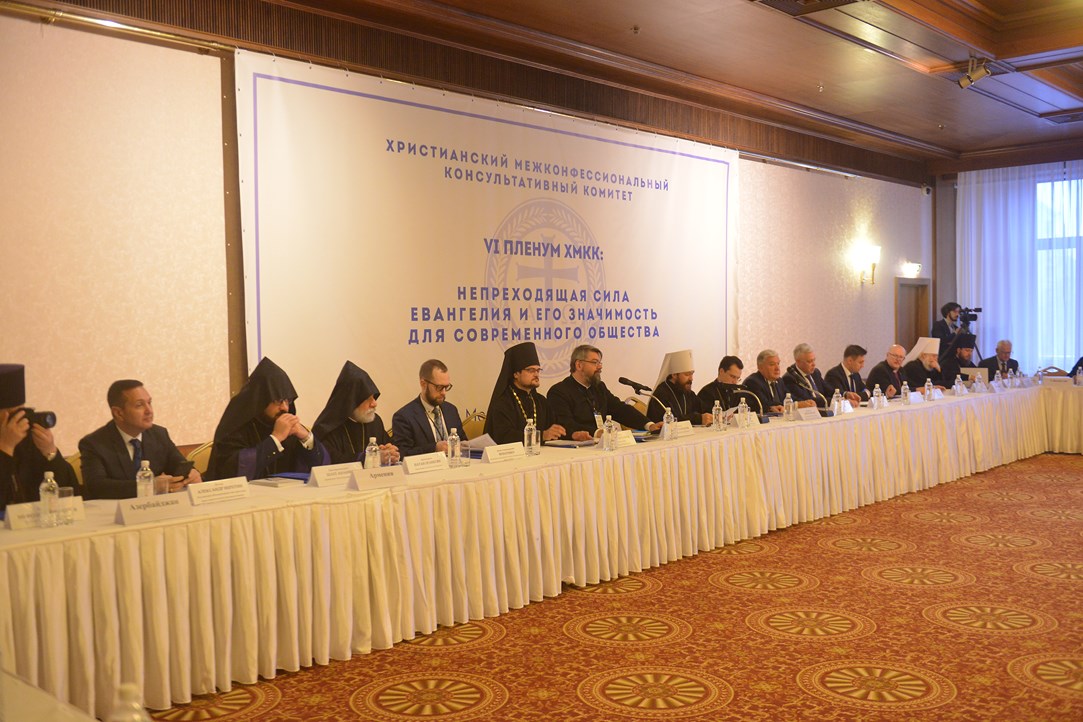
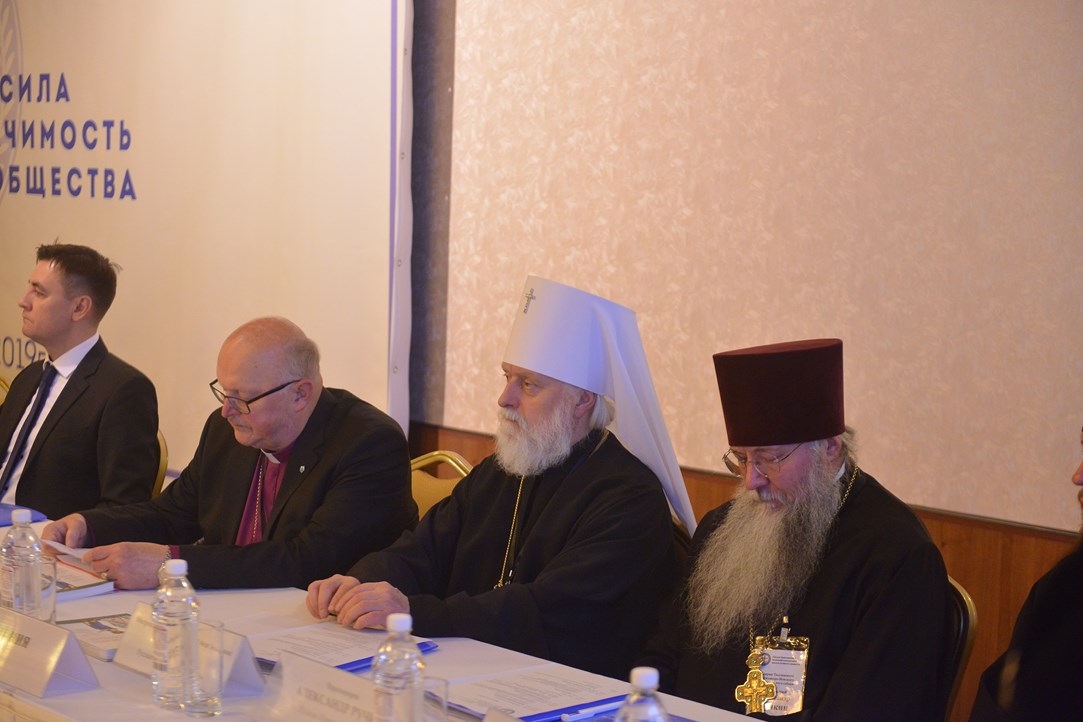

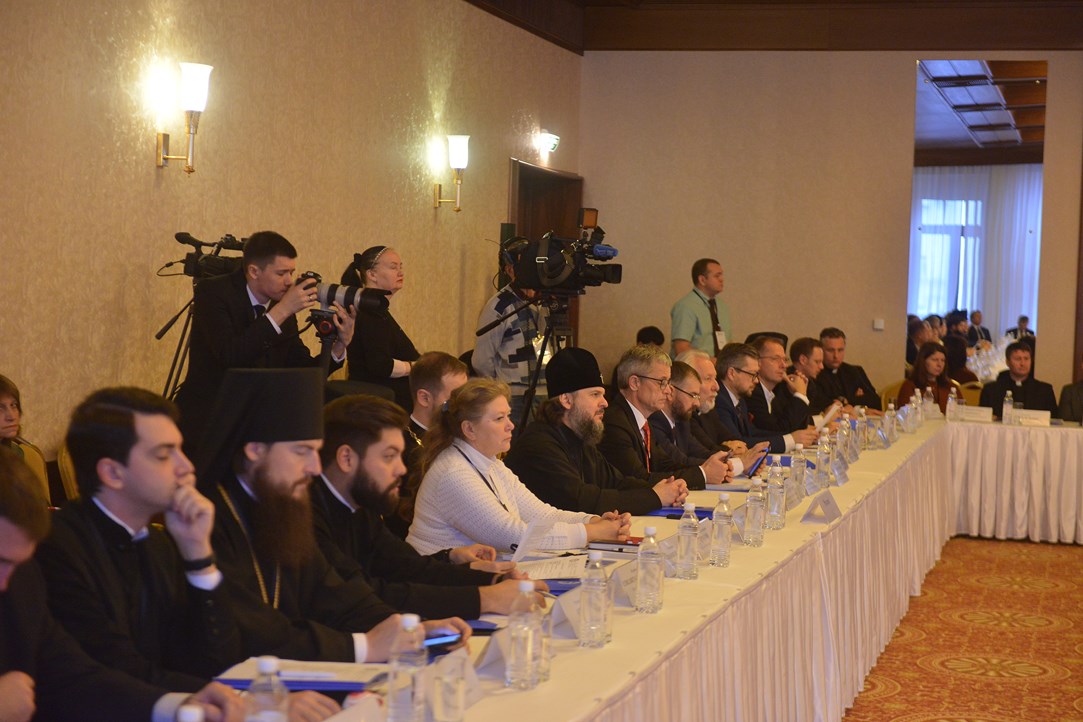







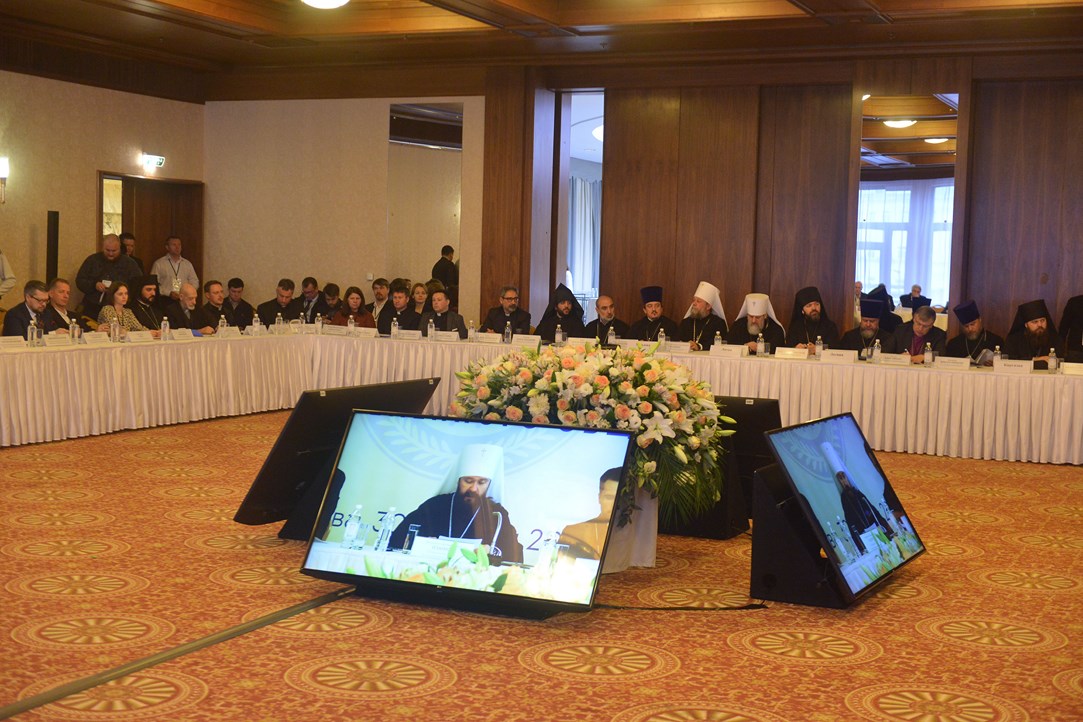
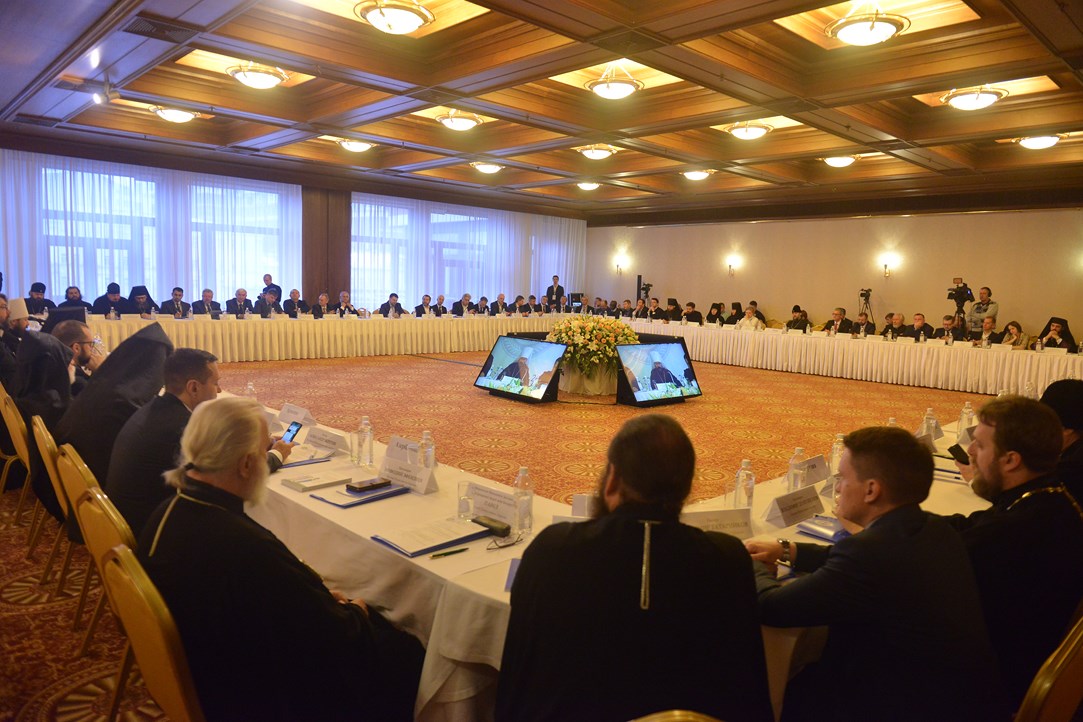
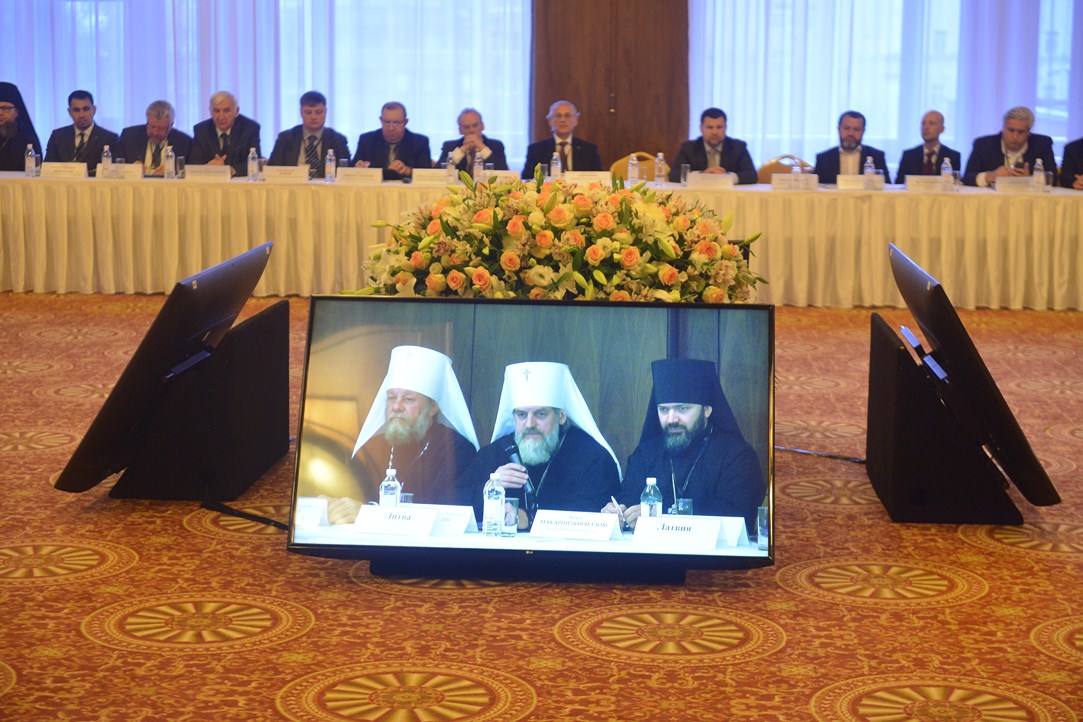



October 30, 2019 – the Christian Inter-Confessional Consultative Committee is holding its 6th Plenary Session at the conference hall of President Hotel in Moscow under the theme ‘The Eternal Power of the Gospel and Its Significance for the Modern Society’. Among the attendees are representatives of Christian confessions in Armenia, Azerbaijan, Belarus, Estonia, Georgia, Kazakhstan, Kyrgyzstan, Latvia, Lithuania, Moldova, Russian Tajikistan, Turkmenistan, Uzbekistan and Ukraine.
The assembly was greeted by the CICCC co-chairmen – Metropolitan Hilarion of Volokolamsk, head of the Moscow Patriarchate department for external church relations, who presented the program of the forum, and Archbishop Dietrich Brauer, Archbishop of the Evangelical Lutheran Church of Russia. Rev. Kirill Gorbunov spoke on behalf of the CICCC co-chairman Archbishop Paolo Pezzi, ordinary of the Catholic Archdiocese of the Mother of God in Moscow.
Metropolitan Hilarion read out a message of greetings from His Holiness Kirill, Patriarch of Moscow and All Russia.
Mr. M. Belousov, head of the Presidential Administration domestic policy department brought a message of greetings from Mr. Anton Vaino, Chief of Staff of the Presidential Executive Office.
Metropolitan Hilarion delivered remarks on the theme of the plenary session.
Then the forum was addressed by Bishop Victor of Baryshevka, vicar of the Diocese of Kiev, head of the Representation of the Ukrainian Orthodox Church to international organizations; Metropolitan Pavel of Minsk and Zaslavsk, Patriarchal Exarch for All Belarus; Metropolitan Vladimir of Kishinev and All Moldova; Rev. S.Ryakhovsky, Presiding Bishop of the Russian Union of Christians of the Evangelical Faith (Pentecostals); Rev. P. Mitskevich, chairman of the Russian Union of the Evangelical Christians-Baptists; Archbishop Natan Oganesian, chairman of the Holy Echmiadzin department for international relations and protocol (Armenian Apostolic Church); Metropolitan Yevgeny of Tallinn and All Estonia; Bishop Einars Alpe of Daugavpils (Evangelical Lutheran Church of Latvia); Metropolitan Innokenty of Vilna and Lithuania; O. Goncharov, deputy chairman of the Centralized Religious Organization of Euro-Asian Division of the Church of the Seventh-Day Adventists General Conference; Bishop Gennady of Kaskelen, vicar of the diocese of Astana; A. Neretin, representative of CSDA in Azerbaijan; Bishop Daniel of Bishkek and Kyrgyzstan; R. Khaibullin, member of the ECB Union in Uzbekistan; Archbishop Feofilakt of Pyatigorsk and Cherkessk, acting administrator of the Patriarchal Deanery of the Russian Orthodox Church in Turkmenistan; K. Abdulaev, president of the Union of the ECB Churches in Tajikistan; I. Borichesvky, head of the administration of the Presiding Bishop of the Russian Church of Christians of the Evangelical Faith; Archbishop Amvrosy of Vereia, rector of the Sretenskaya Theological Seminary and abbot of the Sretensky Monastery in Moscow; Sister Jualinia (Kaleda), mother superior of the Convent of Conception in Moscow.
In conclusion of the first session, Metropolitan Hilarion said:
‘I would like to say once again that the Gospel is a book that unites us all, and for each of us the Gospel is the guide for life. I think we can still do much more to make the Gospel known to as many people as possible. There are simple ways of bringing the Gospel’s truths to people, which we do not always use. For instance, the gratuitous distribution of the Gospel. In the Russian Orthodox Church, there is this project supervised by the St. Gregory the Theologian Foundation: we together with the Moscow Patriarchate Publishers have printed about a million of copies of the New Testament. At the same time, we do not distribute them to some random people, as we do not stand in metro giving out copies of the Gospel to all the passers-by, though such actions have also been used, in particular, in Moscow by Sretensky seminarians. But the million copies that I have mentioned was targeted to be given to people in hospitals, prisons, to travellers, to those who came to the events we organized, as well as through dioceses and parishes. I hope that the word God reached those who took this book in their hands.
‘Certainly, to understanding the meaning of the Gospel it is insufficient just to buy this book or receive it free; it is even insufficient to simply read it through. An authoritative interpretation is needed. And what is most important is that this book continues to live in the communities founded by Christ and His apostles and it is only within these communities that the Gospel becomes the Book of Life in the full sense. It finds its life in the lives of other people, not those who are described on the Gospel’s pages, but those who, through their participation in the life of a Christian community, become part of the Gospel’s story. I think that each of our Churches and each of our communities has its own ways of bringing the Gospel’s truth home to people. Our missionary ways, strategies and methods can considerably differ, as can approaches to the interpretation of the Gospel’s text. But if this variety of traditions can confuse some, on the other hand, it can enrich many because we can learn from each other how to read the Gospel, to understand it, to interpret it, and how to live it up.
I can say from my own experience that for many years I used to read the Gospel in the light of interpretations given by holy fathers of the Orthodox Church. Written in antiquity, as the interpretation of St. John Chrysostom is, they very substantially broaden our understanding of the Gospel’s text. At the same time, at the mature age I read works by Dietrich Bonhoeffer and discovered in them a very fresh and very profound and brilliant approach to the Gospel’s text that enriched my personal perception of it. And every time I came in touch with such literature on the Gospel, I found in it what I could not agree with but also much that is consonant with my idea, as an Orthodox Christian, of the Gospel’s text.
I think that each of us has something to be shared with each other, something to tell each other. I would wish that not only our mouths but also our ears should be open for us to hear other points of view, other interpretations of the Gospel’s text and for us together to work for spreading the Gospel’s news about Jesus Christ – God Incarnate, Crucified and Risen for the sake of all and each one’.
After a break, the second and third plenary sessions were held for delivering remarks on the theme and holding a common discussion.
The theme of the Plenary continued to be discussed in four round tables on ‘Following in the Steps of Christ. Being a Christian today’; ‘Peace-making: the Gospel’s way’; ‘The Gospel: the moral guide in modern society’; ‘The Gospel and service of the neighbour (diakonia)’.
DECR Communication Service
